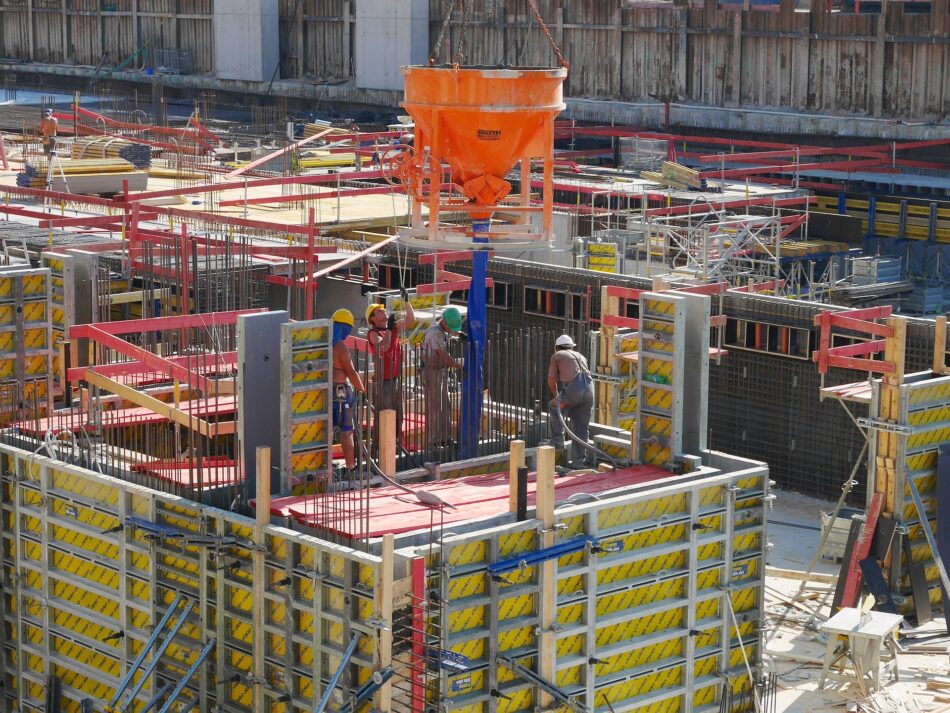Zero Waste Christmas Ideas for Businesses
Many businesses create more waste at Christmas than any other time of year. Enjoy a sustainable festive season with these zero waste Christmas ideas.

If you work within the construction industry, it’s likely you’ll produce large volumes of waste from the daily running of your business. Construction waste is inevitable, but you must take necessary steps to ensure used building materials are disposed of safely and securely in a way that doesn’t harm the environment.
Recycling building materials is a green way to get rid of your used building materials from any construction, renovation, or demolition job. Discover everything you need to know about disposal of building waste from a personal or professional project in this guide.
Many materials could class as building waste due to the different elements used during construction. Generally used buildings materials tend to fall into different waste categories that include:
There’s no known inventor for building materials or the construction process. However, historians have traced the earliest large-scale buildings (for which evidence still remains) to ancient Mesopotamia. Their studies found evidence of both small- and large-scale properties, including palaces and temples.
Building materials can be made from any number of base materials. Often these include sand, clay, stones, soil, plastic, glass, and wood.
Building materials undergo different construction processes, depending on their intended use. For example, products such as sand, limestone and soda ash are melted at very high temperatures to create glass. Cement, however, is made when limestone is heated to a very high temperature, releasing the carbon dioxide stored within the stone. This creates a fine powder, which hardens when mixed with water.
If you run a building or construction company, there are various government legislations you must adhere to regarding how you manage your disposal of building waste. These include the Environmental Protection Act 1990 and the Hazardous Waste Regulations 2005. The Environment Agency and local authorities enforce the laws around safe waste management for the construction industry. Essentially, you must:
If your used building materials are sent to a landfill site, they may take decades to decompose naturally. For example, plastic building materials can take upwards of 1000 years to biodegrade in landfill. Bricks are also non-biodegradable and can take hundreds of years to break down in landfill.
Sending building material waste for recycling means they can be used repeatedly. When recycling building materials, they go through different processes depending on their type. For example:
The construction industry is currently moving towards becoming more sustainable. This is evidenced by the number of eco-homes under construction and development. Thankfully, there are various materials you can use considered to be more eco-friendly than traditional building materials. These include:
Surplus building materials or waste from construction and demolition sites and projects doesn’t always need throwing away. For example, there are various secondary uses you can consider – you may be able to use leftover materials for your next project or to carry out some DIY.
Alternatively, various UK-based organisations accept donations of building materials for community outreach projects. This includes charities such as Enviromate.
The overall cost for builders’ waste disposal depends on the amount and type of waste you produce. The method of disposal also impacts the cost – building materials recycling is cheaper and better for the environment, as you don’t have to pay any landfill tax. At Business Waste, we aim to avoid sending waste to landfill wherever possible.
We’ll help you carry out a waste management audit to ensure you have the best practices in place for your building waste disposal. With free bins delivered to your site (you pay for collection), it makes disposal and recycling cost-effective. Get a free quote today – contact us online or call 0800 211 8390.
The construction industry in the UK uses around 400 million tonnes of materials every year. However, the sector also generates approximately 100 million tonnes of waste. Around the world the construction industry uses about 50% of global steel production and 3 billion tonnes of raw materials to create building products.
While the exact number of building materials currently in landfill sites is unclear, it’s estimated that as much as 30% of all materials found on a construction site will end up in a landfill.
You can donate surplus building materials to various charities or community projects rather than simply throwing them away. Alternatively, if they’re in good condition, you can sell them online on sites such as Gumtree. You can also take used buildings materials to your local recycling centre to ensure they’re disposed of correctly for free.
Find out more about other rubbish streams.
Get a fast FREE quote for your building materials waste
Many businesses create more waste at Christmas than any other time of year. Enjoy a sustainable festive season with these zero waste Christmas ideas.
Black Friday produces an estimated 1.5 million tonnes of waste. Learn about its negative environmental impact with these Black Friday waste statistics.